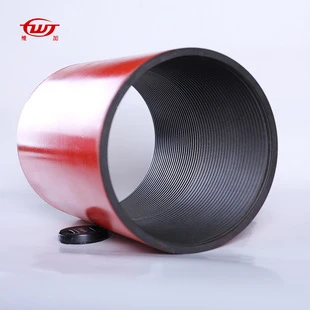- Afrikaans
- Albanian
- Amharic
- Arabic
- Armenian
- Azerbaijani
- Basque
- Belarusian
- Bengali
- Bosnian
- Bulgarian
- Catalan
- Cebuano
- Corsican
- Croatian
- Czech
- Danish
- Dutch
- English
- Esperanto
- Estonian
- Finnish
- French
- Frisian
- Galician
- Georgian
- German
- Greek
- Gujarati
- Haitian Creole
- hausa
- hawaiian
- Hebrew
- Hindi
- Miao
- Hungarian
- Icelandic
- igbo
- Indonesian
- irish
- Italian
- Japanese
- Javanese
- Kannada
- kazakh
- Khmer
- Rwandese
- Korean
- Kurdish
- Kyrgyz
- Lao
- Latin
- Latvian
- Lithuanian
- Luxembourgish
- Macedonian
- Malgashi
- Malay
- Malayalam
- Maltese
- Maori
- Marathi
- Mongolian
- Myanmar
- Nepali
- Norwegian
- Norwegian
- Occitan
- Pashto
- Persian
- Polish
- Portuguese
- Punjabi
- Romanian
- Russian
- Samoan
- Scottish Gaelic
- Serbian
- Sesotho
- Shona
- Sindhi
- Sinhala
- Slovak
- Slovenian
- Somali
- Spanish
- Sundanese
- Swahili
- Swedish
- Tagalog
- Tajik
- Tamil
- Tatar
- Telugu
- Thai
- Turkish
- Turkmen
- Ukrainian
- Urdu
- Uighur
- Uzbek
- Vietnamese
- Welsh
- Bantu
- Yiddish
- Yoruba
- Zulu
Understanding Casing Collars in Oil and Gas Industry Applications
Understanding Casing Collars in Oil and Gas Drilling
In the oil and gas industry, drilling operations are complex and require a variety of specialized equipment to ensure efficiency and safety. One critical component of the drilling process is the casing collar, which plays a vital role in the overall integrity of well construction. Understanding casing collars, their functions, and their importance can provide valuable insights into their role in drilling operations.
What is a Casing Collar?
A casing collar is a specific type of mechanical device used in the oil and gas drilling process. It is a circular, thickened section of casing pipe that is placed at regular intervals along the length of the casing string. Casing itself is a series of pipes that are inserted into a drilled well to provide support and protection to the wellbore, preventing the walls from collapsing and protecting groundwater from contamination. The casing collar serves multiple purposes, ranging from providing structural integrity to facilitating the installation of well completion equipment.
Types of Casing Collars
Casing collars come in various types, each designed for specific functions and environments. The most common types include
1. Conductor Collars These are typically installed at the surface and help anchor the casing in place.
2. Intermediate Collars Positioned deeper in the well, these collars provide additional support where geological formations are less stable.
3. Production Collars These are specifically designed for the final casing string that will be used to extract hydrocarbons from the well.
Each type of collar is crucial for maintaining the alignment and stability of the casing throughout the drilling process
.Key Functions of Casing Collars
casing collar

Casing collars serve several essential functions in drilling operations
1. Structural Support Casing collars reinforce the casing pipe, ensuring that it can withstand the pressures and stresses associated with drilling and production.
2. Fluid Control Collars help in controlling the flow of drilling fluids, allowing for better management of wellbore pressure.
3. Connection Points Casing collars provide clear connection points for other equipment, such as tubing, monitoring devices, and valves, facilitating easier installation and maintenance.
4. Well Logging Casing collars often have markings that assist in measuring the depths of various sections of the well, providing valuable data for geological assessments and future drilling operations.
5. Protection Against Corrosion Many collars are treated with anti-corrosive materials to extend their lifespan, especially when exposed to harsh environmental conditions and corrosive substances during drilling.
Importance of Casing Collars in Drilling Operations
The importance of casing collars in drilling cannot be overstated. They enhance the structural integrity of the well, which is vital for safety and efficiency. Without properly designed and installed casing collars, the risks of wellbore collapse and fluid loss significantly increase. Casing collars also contribute to effective well completion and production, ensuring that hydrocarbons can be extracted in an efficient and environmentally responsible manner.
Advancements in materials science and engineering have led to the development of high-performance casing collars that can withstand extreme temperatures and pressures. This evolution reflects the industry's ongoing commitment to improving drilling technologies and safety protocols.
Conclusion
In summary, casing collars are an indispensable element of oil and gas drilling operations. Their primary role in providing structural support, facilitating fluid control, and ensuring connectivity between various drilling components underscores their significance in the overall drilling process. As technology continues to advance, the design and functionality of casing collars will likely evolve, further enhancing their role in safe, efficient, and sustainable hydrocarbon extraction. Understanding the intricacies of casing collars not only helps industry professionals make informed decisions but also fosters a greater appreciation for the complexities involved in tapping into the earth's natural resources.
-
Tubing Pup Joints: Essential Components for Oil and Gas OperationsNewsJul.10,2025
-
Pup Joints: Essential Components for Reliable Drilling OperationsNewsJul.10,2025
-
Pipe Couplings: Connecting Your World EfficientlyNewsJul.10,2025
-
Mastering Oilfield Operations with Quality Tubing and CasingNewsJul.10,2025
-
High-Quality Casing Couplings for Every NeedNewsJul.10,2025
-
Boost Your Drilling Efficiency with Premium Crossover Tools & Seating NipplesNewsJul.10,2025







